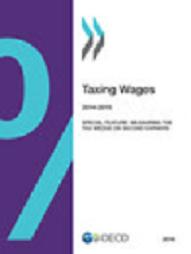Ligthart, Nick, Mody, Ashoka, (2016) ,”The ECB can make a difference if deeds match words”, Voxeu, 14 Απριλίου On 10 March 2016, ECB President Mario Draghi announced new measures to stimulate economic activity and raise inflation in the Eurozone (Constâncio and Draghi 2016b). The action was prompted by the worry that ‘core’ inflation, which strips out volatile food and energy prices, has remained stubbornly close to, or under, an annual …Read More
Youth unemployment in the Mediterranean region and its long-term implications
Boot, Nuria, Wilson, Karen E., Wolff, Guntram B., (2016), “Youth unemployment in the Mediterranean region and its long-term implications”, Bruegel, 13 Απριλίου Youth unemployment in the Mediterranean region has consequences for the whole of Europe. Tackling youth unemployment in the region must continue to be a high policy priority. Europe’s Mediterranean neighbourhood has become a focal point of attention due to the refugee crisis. With over a million people arriving in Europe in the …Read More
Breaking the link between housing cycles, banking crises, and the recession
Persaud, Avinash, (2016), “Breaking the link between housing cycles, banking crises, and the recession”, Voxeu, 14 Απριλίου Since the breakup of Bretton Woods in the early 1970s, the housing market has been at the centre of the biggest banking crises across the world. This column considers the nexus between housing, banking, and the economy, and how these ties can be broken. It argues for two modest regulatory changes in banking and …Read More
Financial cycles, labour misallocation, and economic stagnation
Borio, Claudio, Kharroubi, Enisse, Upper, Christian, Zampolli, Fabrizio, (2016), “Financial cycles, labour misallocation, and economic stagnation”, Voxeu, 14 Απριλίου Some analysts claim that secular stagnation is responsible for the disappointing post-crisis economic performance. This column provides a different explanation that points to an unsuspected villain: the misallocation of resources (in our case, labour) during the pre-crisis financial boom and the long shadow it has cast post-crisis. The findings draw on an empirical analysis …Read More
Quantitative Easing: An Underappreciated Success
Gagnon, Joseph E., (2016), “Quantitative Easing: An Underappreciated Success”, Peterson Institute for International Economics, Απρίλιος After short-term interest rates in many advanced economies fell below 1 percent, central banks turned to quantitative easing (QE) to support economic growth. They purchased massive and unprecedented amounts of long-term bonds in an effort to reduce long-term borrowing costs. Nevertheless, recovery from the Great Recession proved disappointingly slow. Recently, some central banks have pushed short-term …Read More
The Refugee Surge in Europe : Economic Challenges
Aiyar, Shekhar, Barkbu, Bergljot, Batini, Nicoletta, Berger, Helge, Detragiache, Enrica, Dizioli, Allan, Ebeke, Christian, Lin, Huidan, Kaltani, Linda, Sosa, Sebastian, Spilimbergo, Antonio, Topalova, Petia, (2016), “The Refugee Surge in Europe : Economic Challenges”, IMF Staff Discussion Note SDN/16/02, Ιανουάριος The dislocation of large parts of the population in Syria and other conflict zones is, first and foremost, a humanitarian catastrophe with important ramifications across many countries in the Middle East, Europe, and beyond. This note focuses on one facet of this complex issue, the economic aspects of the surge in asylum …Read More
Post-crisis International Banking: An Analysis with New Regulatory Survey Data
Ichiue, Hibiki, Lambert, Frederic, (2016), ” Post-crisis International Banking: An Analysis with New Regulatory Survey Data”, IMF WP/16/88, Απρίλιος Foreign bank lending has stopped growing since the global financial crisis. Changes in banks’ business models, balance-sheet adjustments, as well as the tightening of banking regulations are potential drivers of this prolonged slowdown. The existing literature however suggests an opposite effect related to regulation, with tighter regulations encouraging foreign lending through regulatory …Read More
Taxing Wages 2016
OECD, (2016), “Taxing Wages 2016”, OECD Publishing, Paris, Απρίλιος This annual flagship publication provides details of taxes paid on wages in OECD countries. It covers: personal income taxes and employee contributions paid by employees, social security contributions and payroll taxes paid by employers, and cash benefits received by in-work families. It illustrates how these taxes and benefits are calculated in each member country and examines how they have an impact …Read More
How to reform EU fiscal rules
Claeys, Grégory, Darva, Zsolt, (2016), “How to reform EU fiscal rules”, Bruegel, 12 Απριλίου The austerity policies implemented in many European countries since 2010 have contributed to the poor economic recovery, raising questions about why EU budget rules failed to deliver both economic stabilisation and public debt sustainability. In theory the current rules could do a good job, but in practice they face major hurdles. A key indicator used in the current rules is the structural budget balance. …Read More
Avoiding The Quick Fix Approach To Solving Youth Unemployment
Riso, Sara, (2016), “Avoiding The Quick Fix Approach To Solving Youth Unemployment”, Social Europe, 13 Απριλίου A key priority for EU policy makers is to combat high levels of youth unemployment. Supporting young people to start a new business is increasingly regarded as a way to achieve this goal. And yet the understanding of what drives the success and failure of youth entrepreneurship policies remains incomplete. In a rush to deliver …Read More





